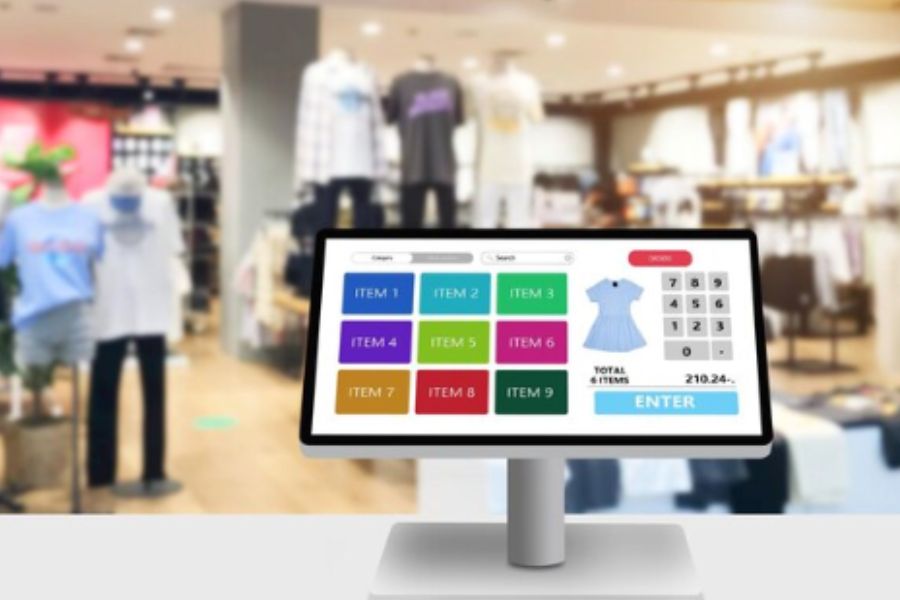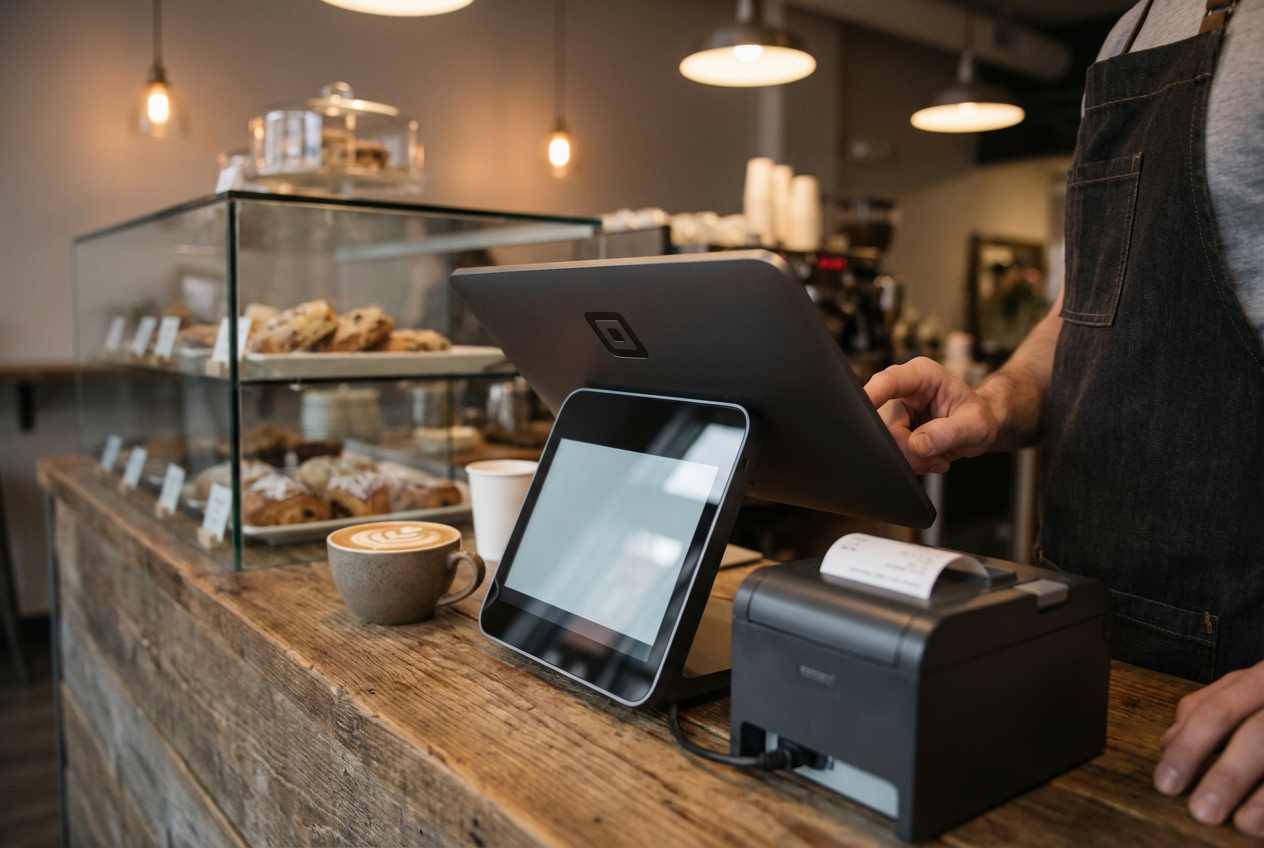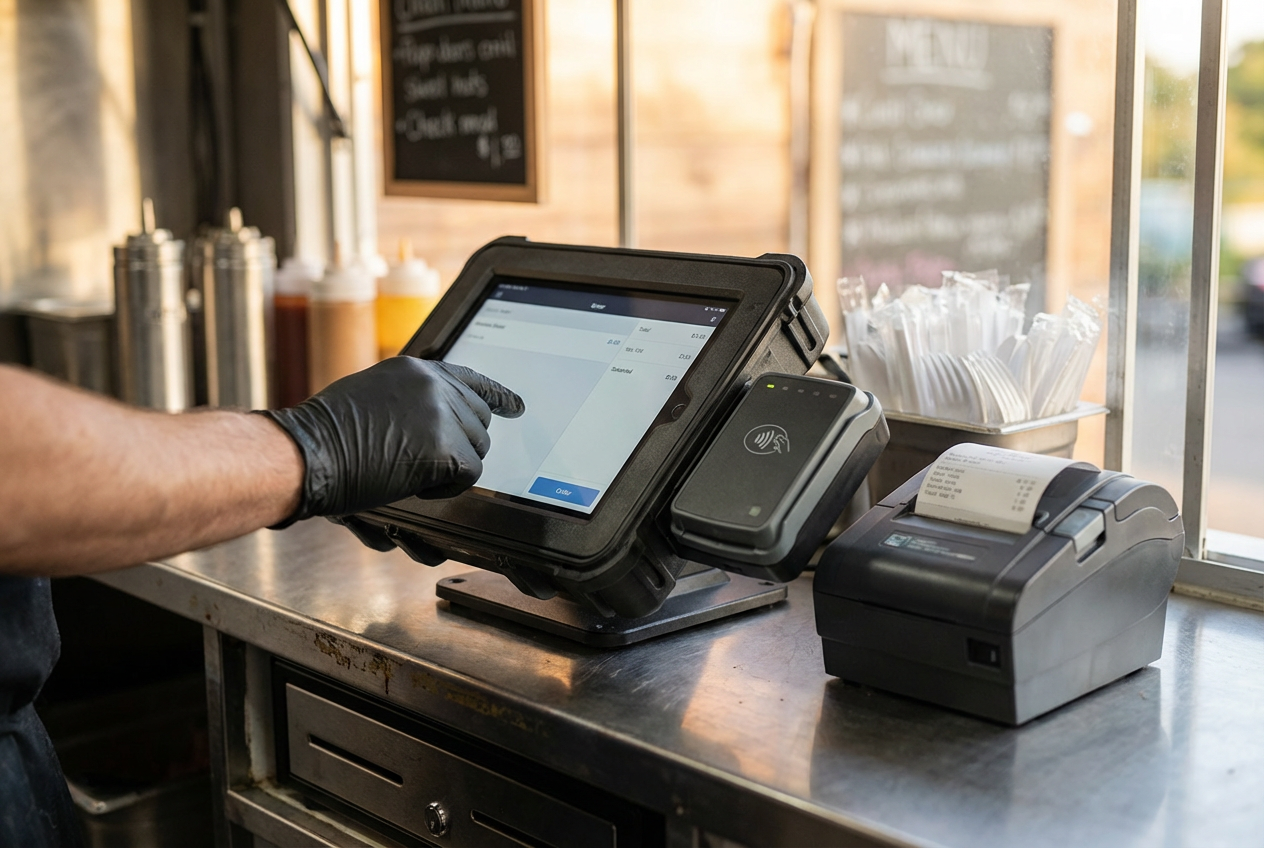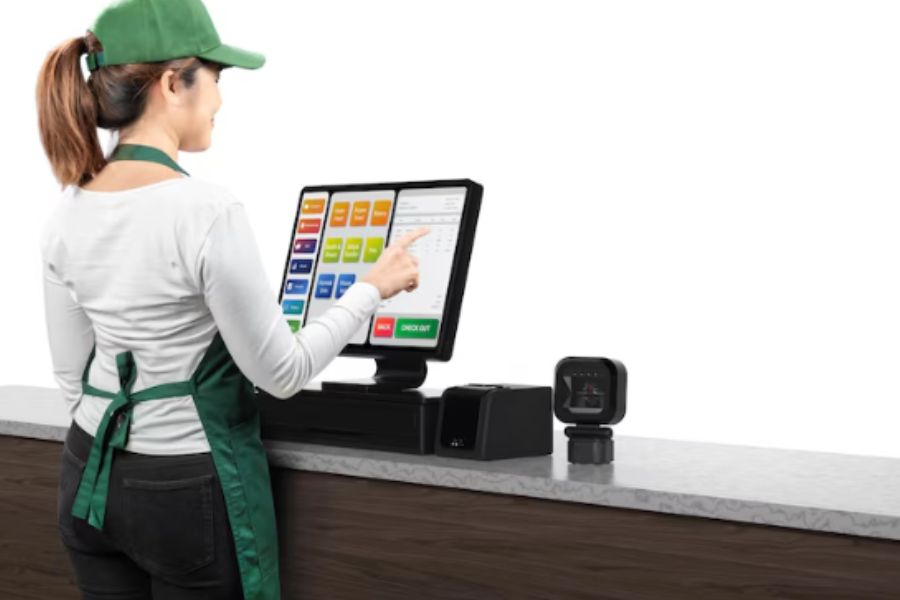Choosing a suitable apparel point of sale Indonesia system depends heavily on business size and operations. Small boutiques often focus on simple workflows, quick checkouts, and flexible payment setups. In contrast, chain stores require stronger tools for managing multiple branches, syncing inventory, and generating centralized reports.
Understanding these priorities supports better system selection and avoids unnecessary costs. ConnectPOS provides an apparel point of sale Indonesia solution tailored to both boutique retailers and multi-store chains, aligning with each business model’s operational needs.
Highlights:
- For smaller stores, ease of use, low setup costs, and mobile POS capabilities are key. These features help boutiques manage sales and inventory efficiently without overwhelming resources.
- Large apparel chains require centralized inventory management, multi-store reporting, and omnichannel support. These features ensure consistency and control across all store locations.
- An apparel Point of Sale system Indonesia must support Bahasa Indonesia, integrate with popular local payment providers, and comply with VAT regulations. These localizations help businesses operate smoothly and meet customer expectations in Indonesia.
The Role of an Apparel Point of Sale System Indonesia
An apparel point of sale system Indonesia supports daily retail operations for fashion businesses. It manages key tasks like inventory tracking, sales transactions, and customer data. For apparel retailers, handling product variants such as sizes, colors, and styles is a regular part of operations, making structured tracking essential.
The system also simplifies returns and exchanges, which are frequent in fashion retail. Retailers can adjust pricing, launch seasonal promotions, and respond to market trends without manual updates.
In Indonesia, apparel stores deal with specific requirements. These include Bahasa Indonesia language settings, integration with local payment platforms like QRIS, and compliance with national tax rules. Without these capabilities, businesses risk delays and regulatory issues.
Choosing an apparel point of sale system Indonesia with localized features improves consistency across all sales channels. It also makes daily tasks easier for staff and improves the overall customer experience. ConnectPOS delivers a solution built to match these retail needs in the Indonesian market.
POS Needs of Small Apparel Boutiques
Small apparel boutiques in Indonesia operate on a leaner scale, so their POS system should support simplicity, affordability, and ease of use. These stores often focus on personalized service and a curated selection of products, which shapes their unique system requirements.
Key priorities:
- Simple, intuitive interface
Staff in small boutiques may have limited training time. A user-friendly POS system allows quick onboarding and smooth daily operations without technical complications.
- Affordable pricing and hardware flexibility
Budget constraints are common. Boutiques benefit from systems that run on existing devices like tablets or smartphones, reducing the need for costly hardware.
►►► Optimal solution set for businesses: Multi store POS, Next-gen POS, Inventory Management Software (MSI), Self Service, Automation, Backorders

- Inventory management for fewer SKUs
With smaller product ranges, boutiques need straightforward tools to manage stock levels, track item variants like size and color, and receive restock alerts.
- Mobile POS options
Mobility enables staff to assist customers anywhere in the store or at pop-up events. This flexibility supports better customer engagement and faster checkouts.
Local considerations:
- Bahasa Indonesia support
An apparel Point of Sale system Indonesia with a Bahasa language interface will improve staff efficiency and reduce training time.
- Integration with e-wallets (OVO, GoPay, Dana)
Support for local digital payments is essential for fast, seamless transactions and customer convenience.
- Basic reporting and loyalty programs
Access to simple sales reports and basic customer loyalty features helps boutiques track performance and retain shoppers without overwhelming complexity.
POS Needs of Apparel Chain Stores
Apparel chain stores in Indonesia operate at a larger scale and require a more robust POS system to manage complex operations across multiple locations. Their focus is on efficiency, data-driven decisions, and consistency in customer experience.
Advanced requirements:
- Centralized inventory across multiple locations
A centralized system ensures real-time visibility of stock levels in all branches, allowing for efficient transfers, restocking, and fulfillment.
- Role-based access control for staff
Managing large teams requires setting specific permissions for store managers, sales staff, and back-office teams to protect sensitive data and streamline operations.
- Detailed sales and customer analytics
Chain stores need in-depth insights into sales trends, customer behavior, and store performance to make informed business decisions.
- Integration with ERP and eCommerce platforms
Seamless connection with backend systems and online stores supports omnichannel POS strategies and unified operations.
- High scalability and reliability
As chain stores expand, their POS system must handle increasing transaction volumes without downtime or performance issues.
- Mobile POS and self-checkout
These features help reduce queues and improve customer experience, especially during peak shopping hours.
Local factors:
- Compliance with Indonesian tax laws
The apparel Point of Sale system Indonesia must support accurate tax calculations and generate reports aligned with local regulations.
- Customizable promotions across store locations
Chain stores often run targeted campaigns; the POS should support scheduling and tailoring promotions by store.
- Local support and dedicated account management
Ongoing assistance and a responsive support team ensure smooth operations and quick problem resolution.
Comparison Table: Small Boutique vs. Chain Store POS Needs
| Feature | Small Boutiques | Chain Stores |
| Inventory Management | Basic SKU tracking | Centralized, multi-location |
| POS Hardware | Tablet or mobile POS | Dedicated terminals, scanners |
| Reporting | Basic daily/weekly reports | Advanced analytics and forecasting |
| Pricing | Budget-friendly plans | Custom enterprise pricing |
| Integrations | Local e-wallets, social commerce | ERP, CRM, eCommerce platforms |
How to Choose the Right Apparel POS for Your Store Size?
Selecting the right POS system depends heavily on your store’s size, structure, and long-term goals. A solution that works well for a small boutique may not meet the demands of a large apparel chain. Start by assessing your current needs and anticipating future growth.
Questions to ask before deciding:
- Number of SKUs and locations?
If you manage a wide range of products or operate multiple stores, you’ll need a POS that supports centralized inventory and multi-location management.
- Sales channels (offline only or omnichannel)?
Retailers selling both in-store and online must choose a POS with seamless integration to eCommerce platforms, helping ensure consistent pricing, inventory, and customer data across all channels.
- Need for advanced reporting or loyalty?
Smaller stores may only need basic sales reports, while larger businesses often rely on detailed analytics and customer loyalty programs to drive repeat purchases and optimize strategies.
- Scalability for future growth
Your POS should be able to grow with your business. A scalable solution allows you to add new stores, users, and features without switching systems entirely, saving time and reducing long-term costs.
ConnectPOS: A Flexible Solution for Apparel Point of Sale System Indonesia
ConnectPOS is a versatile POS solution built to support apparel retailers of all sizes across Indonesia. Its flexible design allows it to scale effortlessly from independent boutique shops to nationwide apparel chains, helping each business optimize operations and improve customer service.
Key features for boutiques:
ConnectPOS offers a plug-and-play setup that makes it easy for small retailers to get started without technical barriers. With affordable pricing plans and compatibility with existing hardware, it keeps costs low.
Moreover, the offline mode ensures smooth operation even during internet disruptions, which is especially useful in smaller or remote store locations.
Key features for chain stores:
For larger retailers, ConnectPOS also has important features such as real-time multi-location inventory management, allowing for centralized control and stock visibility. A robust reporting dashboard delivers data-driven insights across stores. The system also supports omnichannel operations, syncing seamlessly with eCommerce platforms for a unified retail experience.
Local support:
ConnectPOS offers a Bahasa Indonesia interface to ensure ease of use for staff. It integrates with popular local payment providers like OVO, GoPay, and Dana, supporting the digital payment habits of Indonesian shoppers. VAT-compliant receipts and local tax settings help retailers stay compliant with Indonesian regulations.
With these features, ConnectPOS is a powerful and localized solution tailored to Indonesia’s apparel retail market.
To Conclude
As you can see, you can only decide on a suitable apparel point of sale system Indonesia by first understanding your store’s scale, workflow, and local requirements. Small boutiques and chain retailers operate under different conditions, and the system you choose should match those daily demands. Language settings, digital payment integration, and tax compliance aren’t optional, they’re part of running a stable retail operation.
ConnectPOS delivers apparel point of sale system Indonesia solutions built to support both independent shops and multi-store chains. Get in touch with our team to see how the system fits your business and adapts as you grow.
FAQs: Apparel POS System Indonesia
1. What’s the difference between a POS system for small boutiques and one for chain stores?
POS systems for small boutiques focus on simplicity, affordability, and ease of use, often including features like mobile checkout, basic inventory management, and simple reporting. Chain stores require more advanced capabilities such as centralized inventory control, detailed analytics, multi-store coordination, and integration with ERP and eCommerce platforms.
2. Can I start with a basic plan for my boutique and upgrade later as I grow?
Yes, many POS providers, including ConnectPOS, offer scalable plans. You can start with a basic setup that suits your boutique’s current needs and upgrade to more advanced features as your business expands or opens additional locations.
3. Is ConnectPOS compliant with Indonesian tax regulations?
Yes, ConnectPOS is fully compliant with Indonesian tax laws. It supports VAT-compliant receipts, local tax settings, and can generate reports that align with local regulatory requirements, helping businesses stay accurate and audit-ready.
►►► Optimal solution set for businesses: Shopify POS, Magento POS, BigCommerce POS, WooCommerce POS, NetSuite POS, E-Commerce POS




